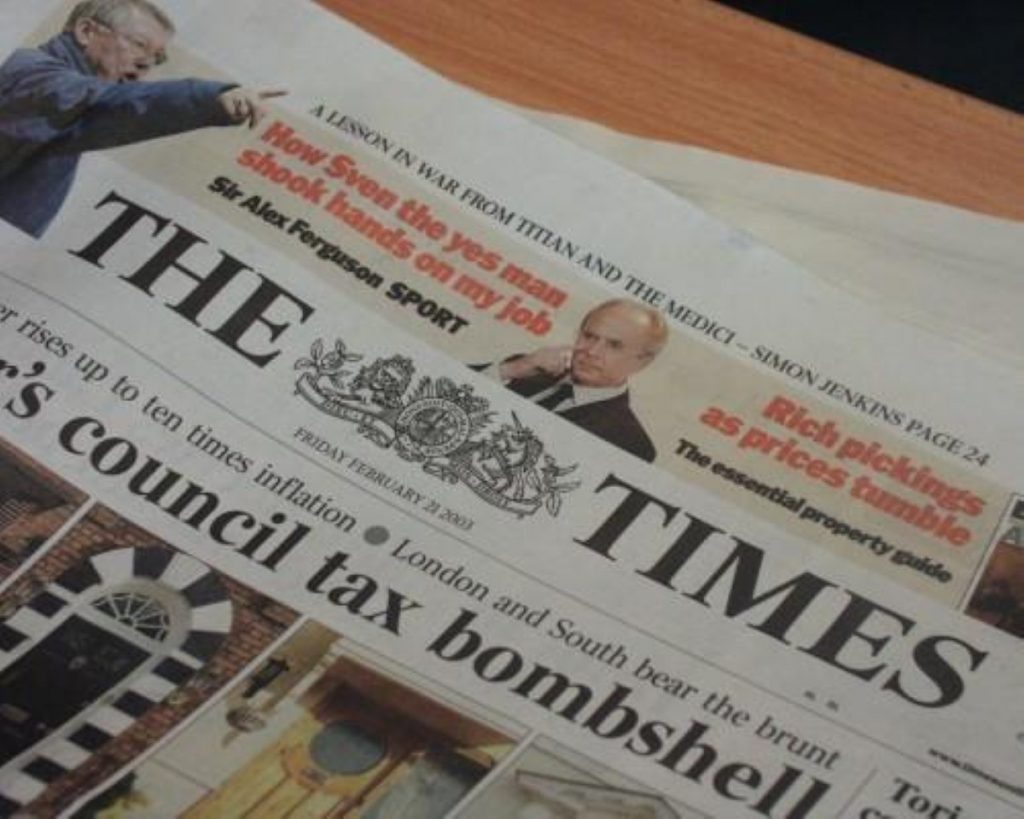Times dragged into hacking row after unmasking blogger
By Graham Fahy
The editor of the Times struggled to justify the behaviour of his staff during a fraught appearance at the Leveson inquiry today.
James Harding appeared red-faced and uncomfortable as he explained why a Times reporter hacked into the email account of anonymous police blogger Richard Horton.
"In the last couple of weeks I've learned a great deal more about what happed in this incident," Mr Harding told the inquiry.


"As editor of the paper I'm responsible for what it does and what its journalists do""I want to say at the outset I sincerely regret the intrusion into Richard Horton's email account by a journalist in our newsroom."
He continued: "Mr Horton and other people expect better of the Times, so do I. On behalf of the paper, I apologise."
The development threatens to put the Times, arguably the most respected of Rupert Murdoch's media outlets, into an embarrassing legal encounter with the courts.
In the course of the testimony, Mr Harding admitted that the Times legal team had told the court the identity of the blogger had been uncovered by "self-starting journalistic endeavour".
"Statements of fact were being put before the court which were incorrect, weren't they?" the inquiry counsel told Mr Harding.
Mr Horton, a serving police officer, was identified in May 2009 by the Times as Nightjack, a blogger covering the reality of police life who received the first Orwell prize for blogging.
It recently emerged Patrick Foster, a junior reporter at the newspaper, uncovered his identity through hacking into his email account.
He initially attempted to clear the story with the Times legal team, only to be strongly criticised for hacking the email and told that the story could run only if sourced by legitimate means.
Mr Foster later emailed Mr Brett, telling him that he had "cracked it" by publicly available means and saying that he would now "front up" Mr Horton. Nightjack responded by initiating legal proceedings to protect his anonymity.
Mr Harding claimed he was completely unaware of the case until the judge gave his draft findings, despite the fact that his own legal team had been battling the case in court.
Harding was forced to agree with the inquiry that the Times legal team had misinformed the barrister acting on their behalf in the interim injunction case and said he wrote to Mr Justice Eady, the presiding judge, to apologise for the fact he was misled.
"Someone owes Mr Justice Eady and Mr Horton an apology," Mr Harding admitted.
"When you look back on this it's terrible".
"We take this inquiry very seriously and when we have learned new things we have brought them to your attention."
In a separate development, Daily Mail editor Paul Dacre was recalled to the inquiry today, to answer questions over his public spat with celebrity Hugh Grant.









